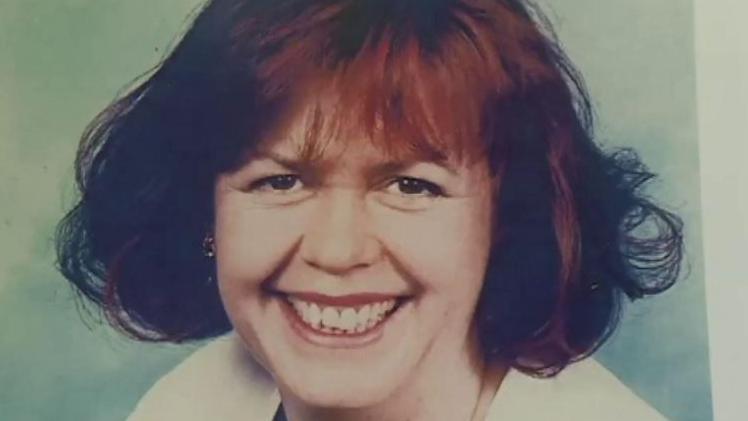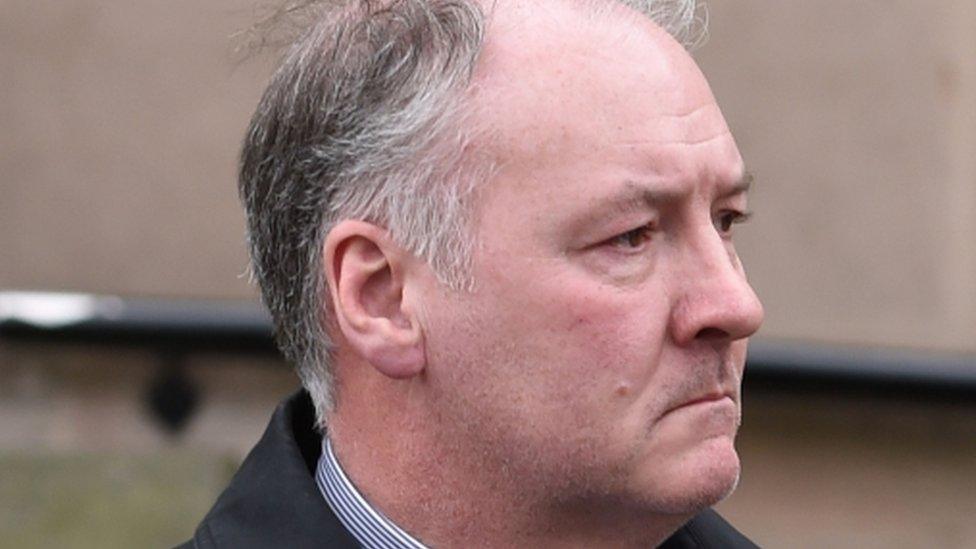Anger at disgraced breast surgeon's open prison move

Ian Paterson is serving a 20-year jail term after being sentenced in 2017
- Published
Rogue breast surgeon Ian Paterson is to be moved to an open prison, sparking anger and distress for his victims and their relatives.
The disgraced medic was jailed for 20 years in 2017 for carrying out unnecessary procedures on his patients and the deaths of more than 60 women have been linked to his botched work.
One relative said it was "a kick in the guts" he would be moving to a Category D open prison, while a liason officer for one of the victims said they had not been informed so were unable to put forward their views.
A spokesman for the Ministry of Justice said it apologised for the miscommunication and any distress caused.
Shirley Moroney, whose sister Marie Pinfield died after she was operated on by Paterson, said she was "devastated".
Ms Pinfield was had a procedure in 2006 and had to ask the surgeon for a second operation to correct the work.
A delay to chemotherapy and radiotherapy meant she developed secondary cancer in her lung and died in October 2008.
An inquest into her death, and those of more than 60 others who were under Paterson's care, is due to start on 7 October.
"It feels to me that if you had a thug that had gone to a pub and caused GBH to 10 people we would never have given them any soft options but because you are a manipulative surgeon you get a fast pass to getting out of prison," Ms Moroney said.
"It is a scandal."
She said she would be contacting her MP and anyone else to see if she could get the decison overturned.
A petition is under way calling for the decision to be reversed.
The liason officer said they did not yet know when Paterson would be moved.
"Unfortunately, the prison did not inform us he was being considered, which would have allowed you time to consider your views," a communication to a victim said.
"As an organisation we can only apologise for the distress caused."
The spokesperson said it had raised concerns with the prison and passed on the victim's views.

Marie Pinfield was operated on by Paterson in 2006 and had to ask for a second operation to correct the work. She died in October 2008.
The Ministry of Justice said any decision to move an offender to open conditions was made by prison governors after strict risk assessments.
“If they step out of line they face being returned to closed conditions immediately,” they said.
Paterson was first put in a Category C prison, known as training and resettlement prisons. A Category D prison has minimal security and allows eligible prisoners to spend most of their day away from the prison on licence to carry out work, education or for other resettlement purposes.
Paterson was convicted of 17 counts of wounding with intent and three counts of unlawful wounding.
Jurors heard he carried out unnecessary operations where he had had exaggerated or invented the risk of cancer.
He had worked at the Spire Parkway Hospital and Spire Little Aston Hospital in Birmingham between 1997 and 2011, as well as NHS hospitals run by the Heart of England NHS Foundation Trust.
The inquests are expected to run for two years at Birmingham and Solihull Coroner’s Court. The number could be even higher as more cases are expected to be referred.
Get in touch
Tell us which stories we should cover in Birmingham and the Black Country
Follow BBC Birmingham on BBC Sounds, Facebook, external, X, external and Instagram, external.
Related topics
- Published25 September 2024

- Published18 September 2024

- Published25 January 2020
